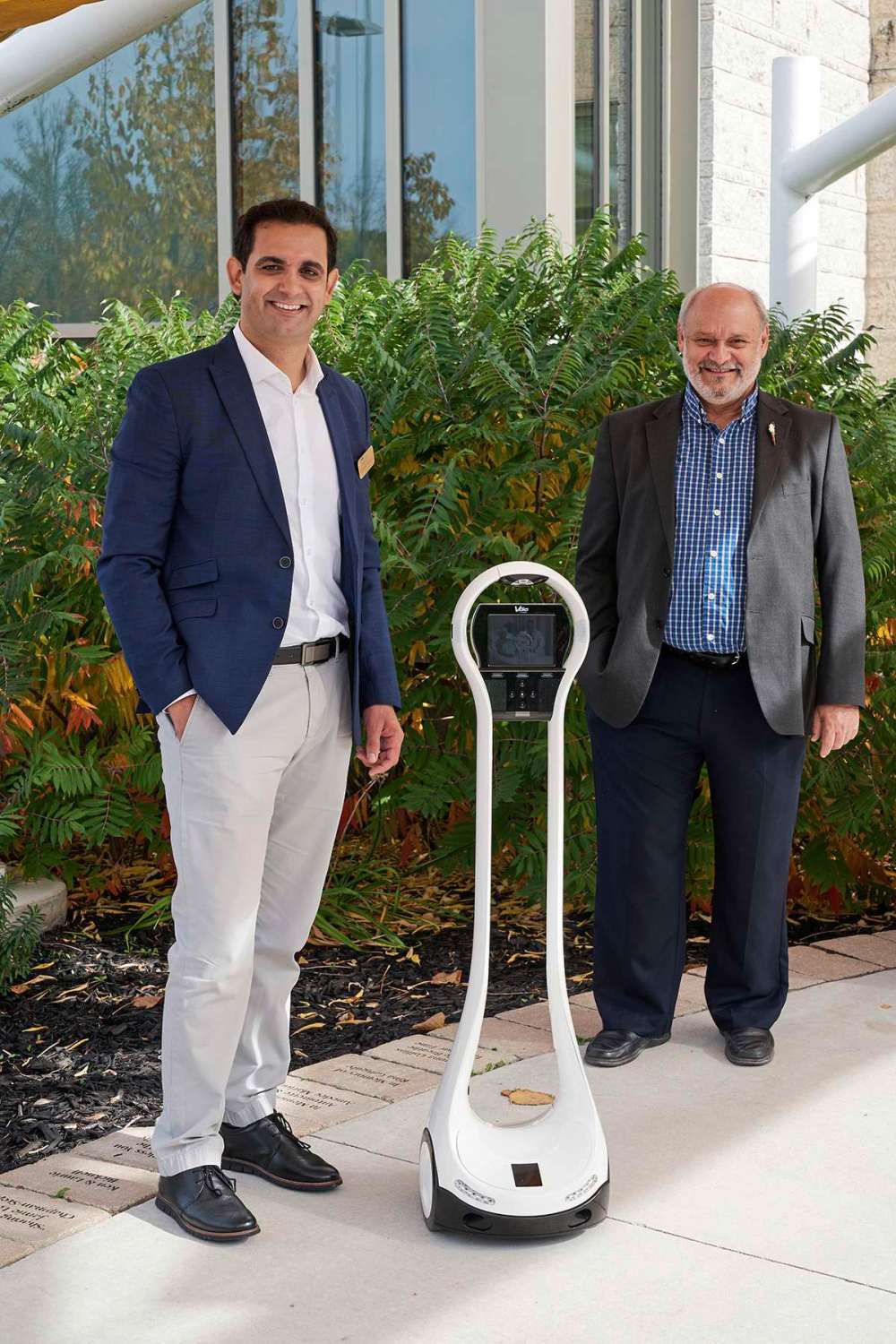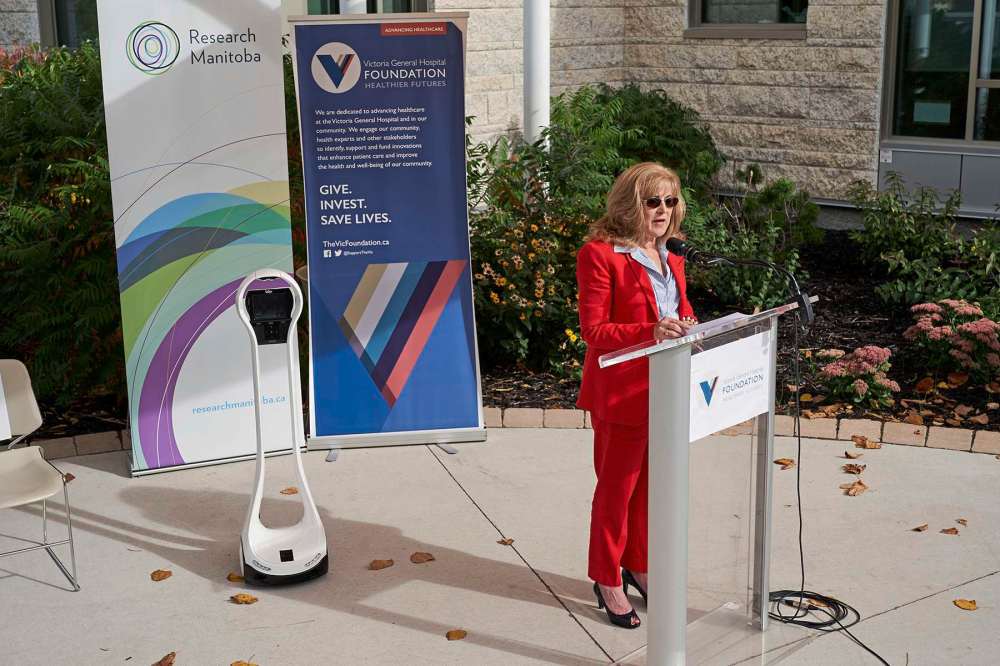Robots to connect people living with dementia, caregivers
Victoria hospital, U of M involved
Advertisement
Hey there, time traveller!
This article was published 05/10/2020 (1877 days ago), so information in it may no longer be current.
Imagine being able to remotely drive a robot around your loved one’s home and speak with them, aiding their memory and ensuring their ability to live independently.
That’s the goal of a study announced on Sept. 24, which will see University of Manitoba researchers look into whether telepresence robots can make a difference in the lives of those living with dementia and their families.
Dr. Reginald Urbanowski, dean and associate professor with the College of Rehabilitation Services with the Rady faculty of health sciences at the U of M, said the study will recruit people living with mild to moderate dementia and their caregivers.

“Telepresence robots provide an effective solution for minimizing the burden on informal caregivers of people living with dementia,” he said. “There are different kinds of telepresence robots, but the kind proposed here provide two-way communication for the caregiver and the person they are caring for when the caregiver is out-of-home, which could help them maintain a career, home and family life.”
The Victoria General Hospital Foundation is the inaugural partner in the recently launched Strategic Partnerships program run by Research Manitoba. The program is putting up $470,000 to support a health research competition to begin this fall (in the amount of $110,000), along with the telepresence robot study, which will receive $360,000.
“Along with mental health care, the Victoria hospital has an interest in dementia research,” Charlene Rocke, foundation executive director, said, adding that the foundation has a proud history of innovation. “We have a lot of geriatric patients, and there is an increase in dementia in the populace. We were definitely interested when Reg Urbanowski first approached us with the idea for using the robots.
“Why use a robot, instead of a tablet, like an iPad?” Urbanowski said. “The robot moves around. If my mom or dad were home alone, living with dementia, I could use my cellphone to move the robot around to find them, and then talk with them on its screen.”
Caregivers are often family members who may feel trapped at home, as they fear leaving the person with dementia alone. The robot would allow them to leave the house, go shopping and do other tasks and not suffer from feelings of anxiety or anger that could lead to depression and changes in their own health, Urbanowski said.
Urbanowski is co-leading the project with Dr. Amine Choukou, assistant professor of occupational therapy at the Rady faculty of health sciences. Over the next two years, they will evaluate 15 robots like the one demonstrated at the announcement at the Victoria General Hospital’s Miracle Garden, which essentially is a video screen on a post, which can travel around and be controlled from a distance.
The research team will be working with the Alzheimer Society of Manitoba and the Manitoba Association of Senior Centres. “There will be a referral process with these two agencies, as the study recruits participants,” Rocke said. “There may be some patients from the Victoria in the study, but really, it’s much broader than the hospital. This type of technology would be great for all Manitobans.”

According to the Alzheimer Society of Manitoba, almost 20,000 Manitobans have Alzheimer’s disease or another form of dementia. By 2038, this could rise to over 34,000 people.
The next step for Urbanowski and his team is to purchase different models of robots and then start recruiting people into the study.
“I imagine we’ll be going full bore in January,” he said. “Then, as this is a small study, we’ll be having conversations with people about whether the robots make a change in their lives.”
That’s the take-home message, he said. “This type of telepresence robot could keep people living with dementia out of the health-care system. We know that loneliness and social isolation put people at risk for dementia. Our goal is to see if we can help people stay in their own homes longer.”




